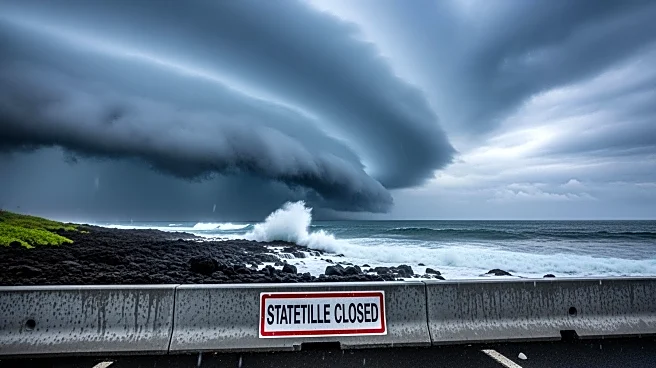Rapid Read • 8 min read
Prime Minister Narendra Modi delivered his 12th consecutive Independence Day speech, emphasizing the need for India to become self-reliant across various sectors, including fighter jet engines, energy, and Artificial Intelligence. Modi announced the formation of a task force for next-generation reforms and changes to the GST as a Diwali gift. His speech focused on 'aatmanirbharta' (self-reliance) in response to rising global protectionism, particularly from the United States. Modi highlighted the importance of extending India's capabilities rather than diminishing those of other countries. He also announced initiatives such as a national deep water exploration mission and a high-powered demography mission to address demographic changes caused by infiltrators.
AD
Modi's call for self-reliance is significant in the context of strained relations with the United States, as President Trump has increased tariffs on Indian imports. The emphasis on 'swadeshi' (Made in India) and innovation aims to bolster India's economic independence and reduce reliance on foreign goods. This approach could potentially strengthen India's manufacturing sector and create more domestic jobs. The focus on self-reliance also aligns with Modi's vision of a 'Samriddh Bharat' (prosperous India), drawing parallels to the freedom fighters' goal of an independent India. The initiatives announced could have long-term impacts on India's economic growth and global standing.
The task force on reforms is expected to make time-bound recommendations to help India become a developed nation by 2047. The upcoming GST reforms are anticipated to lower the tax burden and benefit small industries, with changes expected by Diwali. Modi's emphasis on self-reliance may lead to increased investment in domestic industries, particularly in technology and energy sectors. The government's stance on infiltration and demographic changes could result in stricter policies and measures to protect national security and integrity.
Modi's speech also touched on the issue of infiltration, which has been a longstanding concern for the BJP. The focus on demographic changes and the need to protect jobs and land from infiltrators highlights the political salience of this issue. Modi's reference to the Indus Waters Treaty and nuclear blackmail indicates a shift in India's foreign policy stance, potentially affecting relations with neighboring countries like Pakistan. The development of the 'Sudarshan Chakra' defense system reflects India's commitment to enhancing its strategic capabilities.
AD
More Stories You Might Enjoy












